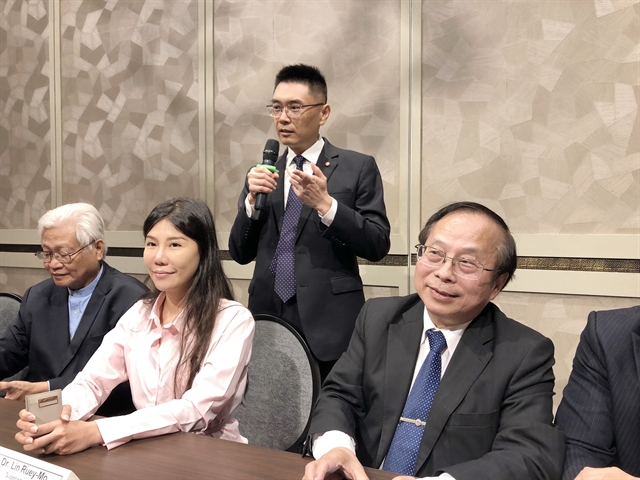Leading hospitals in Taiwan are seeking to enhance cooperation with Vietnamese hospitals and promote their medical services and technology to Vietnamese citizens.

Leading hospitals in Taiwan are seeking to enhance cooperation with Vietnamese hospitals and promote their medical services and technology to Vietnamese citizens.
Keven Cheng, director of the Taiwan Trade Centre in HCM City, said: “Taiwan has advanced technology and high-quality medical services. The price of medical services is comparatively lower than in Thailand and Singapore, and is quite competitive in the market.”
Speaking at the “Taiwan Medical Miracles” event held in HCM City by Taitra last week, Cheng said that more than 420,000 foreign patients visited Taiwan for medical services in 2018, with one-third of them from Southeast Asia.
Dr Vo Van Thanh, advisor to Trung Vuong Hospital, said that many Vietnamese usually choose Singapore, Thailand, Japan and South Korea as the destination for medical treatment, but the number going to Taiwan remained modest since they were unaware of the good treatment in Taiwan for many diseases, including terminal diseases.
Ming-Feng Hou, superintendent of Kaohsiung Medial University Chung-Ho Memorial Hospital, said: “The quality of our medical treatment techniques is superior to that in US hospitals, especially in cancer treatment.”
“Unlike in other countries like Singapore where the medial sector is considered a business sector, the medical sector in Taiwan exists to serve citizens and is not for commercial purposes. So the sector has not been allowed to advertise in foreign countries for a long time.
“Despite the fact that we have cutting-edge medical techniques, affordable prices and considerate services, not many people in Viet Nam know about this,” he said.
However, the medical sector in Taiwan recently allowed promotion abroad.
At the event, representatives of China Medical University Hospital (Taiwan), Tainan Municipal An-Nan Hospital and Kaohsiung Medical University Chung-Ho Memorial Hospital introduced their medical services and technologies, including reconstructive microsurgery for complex deformities, high-tech medical technology, and burn therapy.
Keven said Taitra would support Vietnamese patients with consultations, connect them with hospitals, and assist in getting visas earlier than usual.
For patients who have been diagnosed with a terminal disease and face financial difficulty, Taitra will call on Taiwanese companies operating in Viet Nam to sponsor them, he said.
Bilateral trade between Taiwan and Viet Nam totalled US$14.5 billion in 2018, an increase of 6.5 per cent over 2017. Viet Nam is Taiwan’s ninth largest trading partner, while Taiwan is Viet Nam’s fifth largest trading partner.
Taiwan is striving to promote its New Southbound Policy and considers Viet Nam an important partner, according to Keven.
“We have a lot of cooperation in the field of medicine and health, including medical and health personnel training, epidemic prevention, and others. We believe this event will benefit our cooperation and exchanges in medical and health,” he said.
At the event, Kaohsiung Medial University Chung-Ho Memorial Hospital, China Steel Corporation (Taiwan) and DAI Y Clinic in Viet Nam signed a memorandum of understanding to provide healthcare services to Taiwanese businesspeople and their relatives in Viet Nam. — VNS





